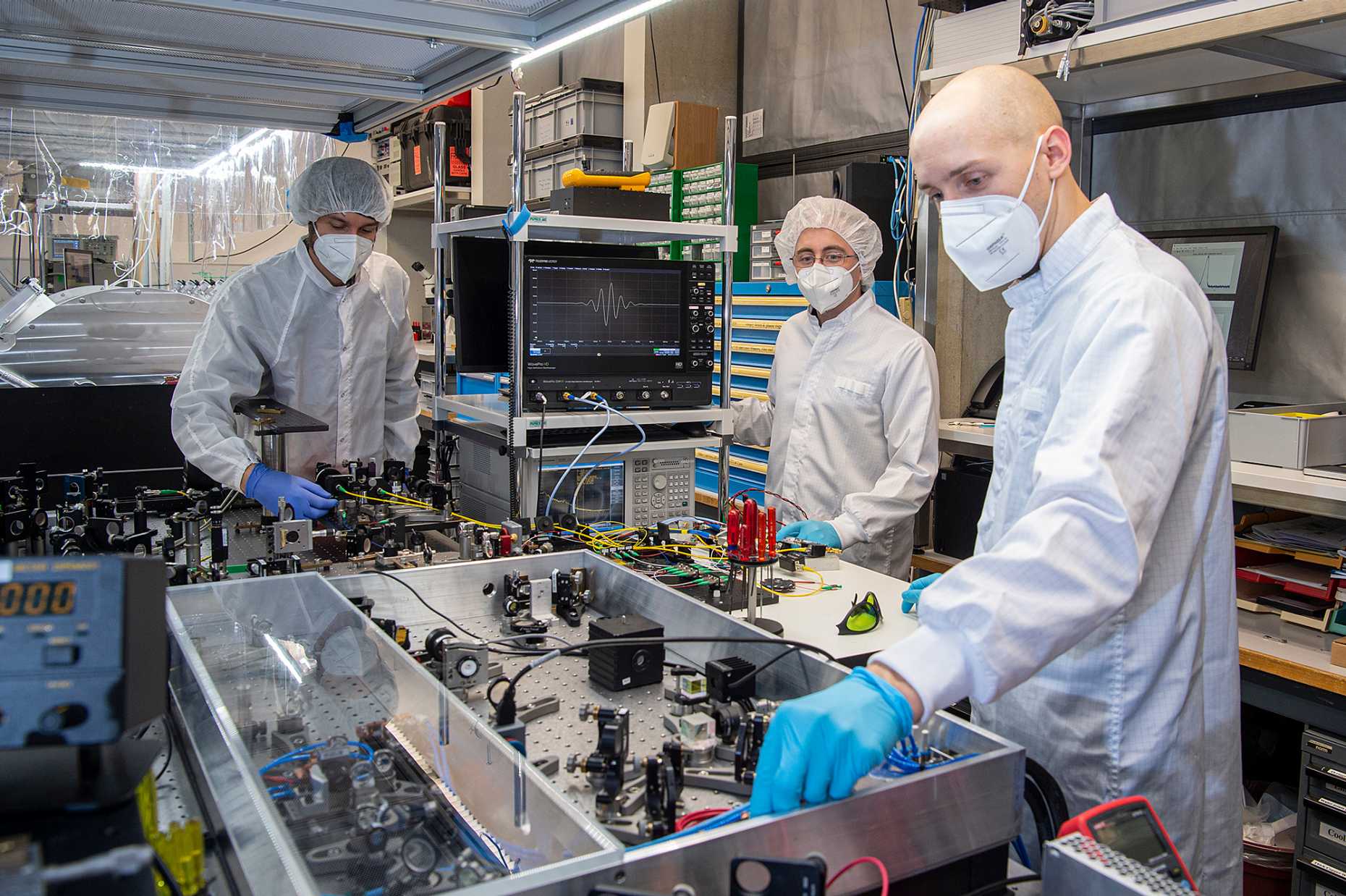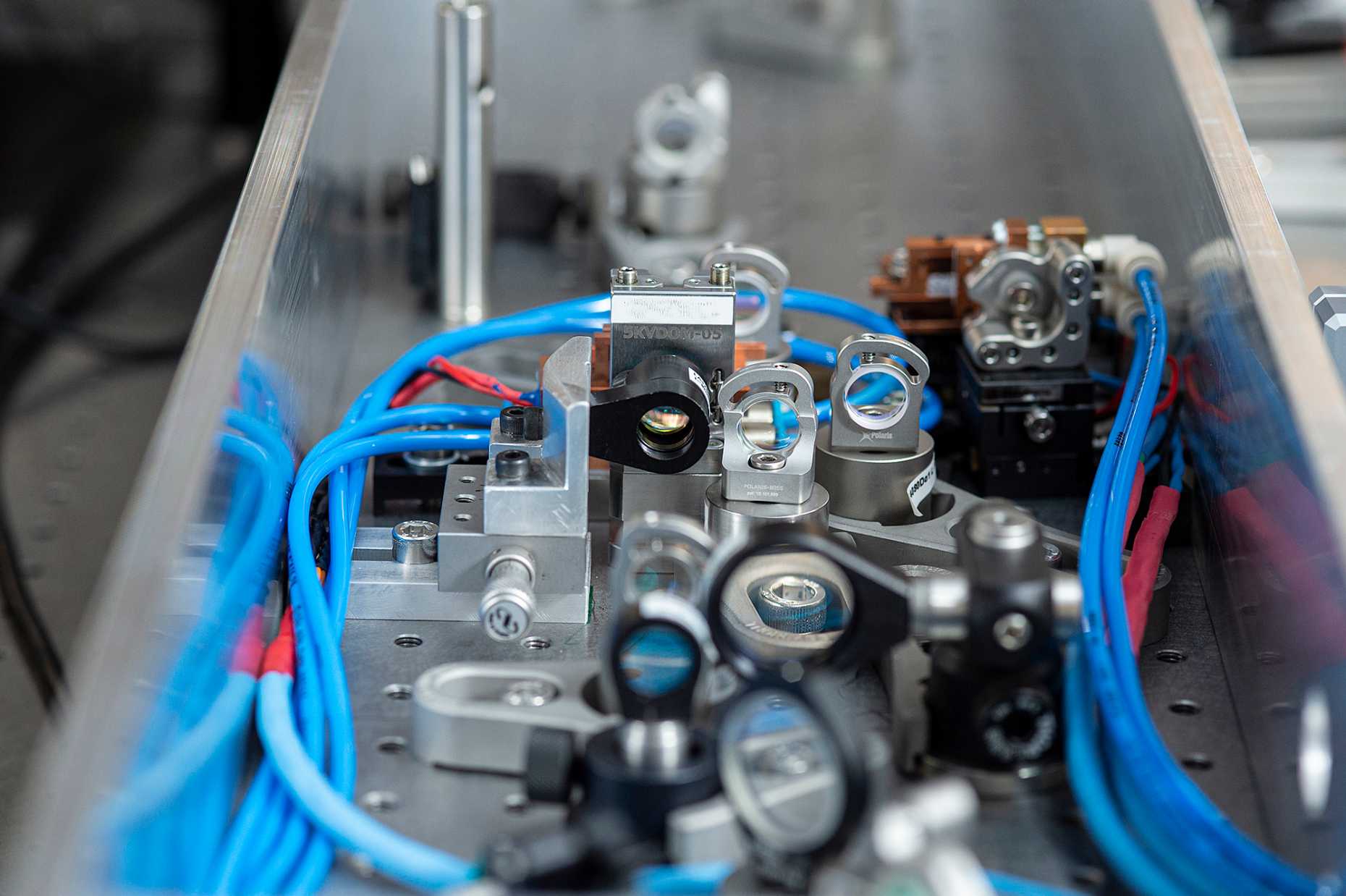Ursula Keller awarded ERC Proof-of-Concept Grant
- Institute for Quantum Electronics (IQE)
- D-PHYS
Ursula Keller, professor at the Institute for Quantum Electronics, has received one of the 55 Proof of Concept (PoC) grants awarded by the European Research Council (ERC) in its latest funding round. Kicking off on 1 March 2021, the grant will enable her and her group to explore novel commercial applications of the dual comb-laser spectroscopy.

external page ERC Proof of Concept (ERC-PoC) grants provide top-up funding to researchers who already hold an ERC grant, such as Professor Keller who is currently carrying out her second ERC-Advanced grant. The ERC-PoC grants are worth 150,000 EUR each and can be used in areas such as exploring business opportunities, preparing patent applications or verifying the practical viability of scientific concepts that benefit society and industry.
Ursula Keller is one of four researchers from Switzerland, and the only one from ETH Zurich, who has been awarded an ERC-PoC Grant in the autumn of 2020, the last of three annual rounds of funding.

Fundamental research with practical potential
Optical absorption spectroscopy in the terahertz (THz) region of the electromagnetic spectrum is used in the industrial sensing and testing of materials, foods, and pharmaceuticals. Within the scope of an ongoing BRIDGE grant of the Swiss National Science Foundation (SNSF), Keller’s team, under the leadership of Dr. Christopher Phillips, has advanced dual-comb laser technology by successfully combining dual optical frequency combs with solid-state lasers producing femtosecond pulses.
Compared to existing lasers used for industrial THz spectroscopy, their breakthrough dual-comb laser technology combines higher performance and lower complexity and could prove less costly than current spectrometers. The additional funding through the ERC-PoC grant enhances the BRIDGE funding and supports the development of a prototype industrial THz spectrometer and the identification of opportunities for its commercialization.
Novel applications and commercialization
Professor Keller notes that private investment has been less forthcoming over the past year. Due to the COVID-19 pandemic, many companies find themselves in a more defensive, risk-averse mode. The ERC-PoC grant helps to compensate for this shortfall and allows the team to explore applications of their patented dual-comb laser technology beyond the scope of the BRIDGE program. From March 2021 to August 2022 Keller’s team will develop and test a prototype industrial THz spectrometer and commercialize it through a spin-off company.

The team is optimistic that their technology will enable more powerful and less costly industrial sensing applications, such as identifying defects or contaminants in polymers, coatings and paints, pharmaceuticals, foods, and semiconductors at a molecular level. Benjamin Willenberg, and Justinas Pupekis are former PhD students from Keller’s group and can stay as postdocs with Christopher Phillips to further explore and highlight the potential for additional applications in environmental monitoring, security, and medical diagnostics.
Keller’s team welcomes inquiries from potential research and industrial partners who are interested in testing the technology in a variety of applications beyond the THz spectrometer.
Contact
Dr. Christopher Phillips,